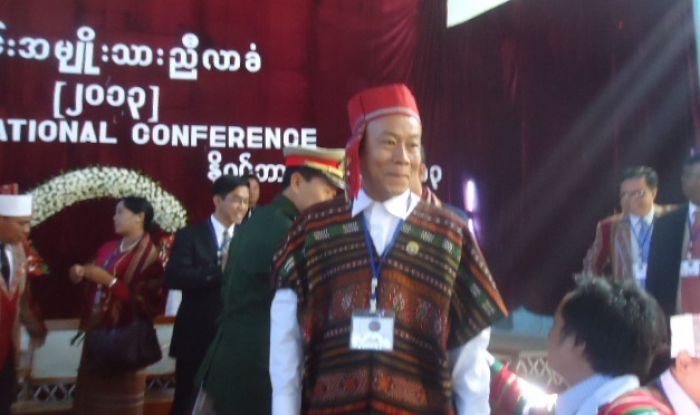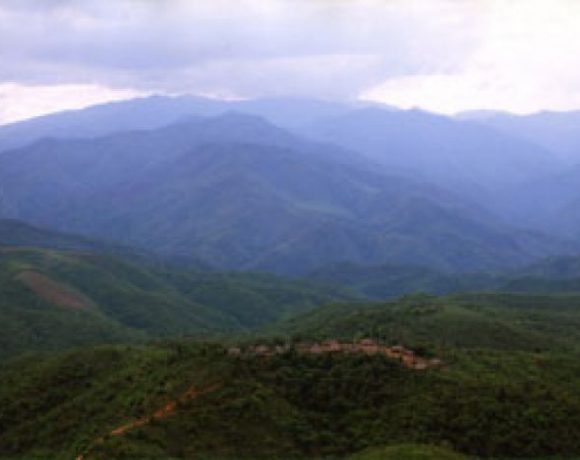Excerpt of speech given at CNC by Chin Affairs Minister of Arakan State

28 November 2013: Salai Ko Ko Naing, Chin Affairs Minister of Arakan State, gave a speech during the opening ceremony of the Chin National Conference held in Hakha, Chin State from 12-15 November 2013.
Below is an unofficial translation of a short excerpt from his speech as published in Hakha dialect by the Hakha Post the following day.
The Chin population in Arakan State is estimated to be over 100,000 spreading across 14 of the total 17 townships. Because of this dispersion, there are tribal groups like the Chin that are unable to have representatives to the Assembly of the Union (Pyidaungsu Hluttaw), the House of Nationalities (Amyotha Hluttaw), and the House of Representatives (Pyithu Hluttaw) in Burma’s parliament.
However, one thing that the 2008 Constitution allows minorities is the ability to have a minister for their ‘National Race Affairs’. Like myself, we have Salai Hla Tun in Magway Region and Pu No Than Kap in Sagaing Region. We are ministers, but we are not happy with our current situation/position. Although the Constitution states that we have the rights to work for the development of the people we represent, we don’t have our own office and budget allocation, without which work can not be done. Working for the people by word, not by action, is impractical.
According to the 2008 Constitution, the National Race Affairs ministers are at the same level of position as State/Region Chief Ministers but the 29 National Affairs Ministers are rather symbolic when it comes to authority mainly due to long-drawn-out laws and policies from the past. It is a clear indication of how the current ‘mother law’ is still being influenced by the previous ones. This is one of the points where ethnic equality must be guaranteed.
We, the Chin, have now immigrated into other countries for various reasons. The Chin are brave, honest and self-governing. We don’t want to be ruled. No matter how diverse in terms of languages/dialects and religions, and what countries we live, we all are Chin.
This is the first time I have been to Chin State. The roads are small and dangerous. But I am so pleased to be here in Hakha, a clean and beautiful town on the hillside.
I can see with my own eyes the results of contributions provided for their native land by the Hill Chins from the countries of residence to which they had fled, owing to the difficult situation. On the other hand, this massive exodus can also be seen as loss of human resources for the development of our people and land. Nevertheless, what I would like us to consider is how we can protect Chin ethnicity from extinction or from ethnic assimilation in the future, and how the Chin diaspora can contribute toward making their native land prosperous. Personally, I would like to put stress on the fact that Chins in foreign countries must come home.
Our country is on the path toward a brighter future. This is the time we need people with good education and skills to help develop the country. The population of Chin State is estimated to be around 500,000. It is, therefore, important that the Chin population in plain areas of Burma is also counted and included.
Today at the Chin National Conference, we really need to focus our discussion on the unity, development, common interest and future of Chin State and the Chin across the country. And it is essential that we raise our concerns and voices regarding what is not right in the Constitution and needs to be amended.#





